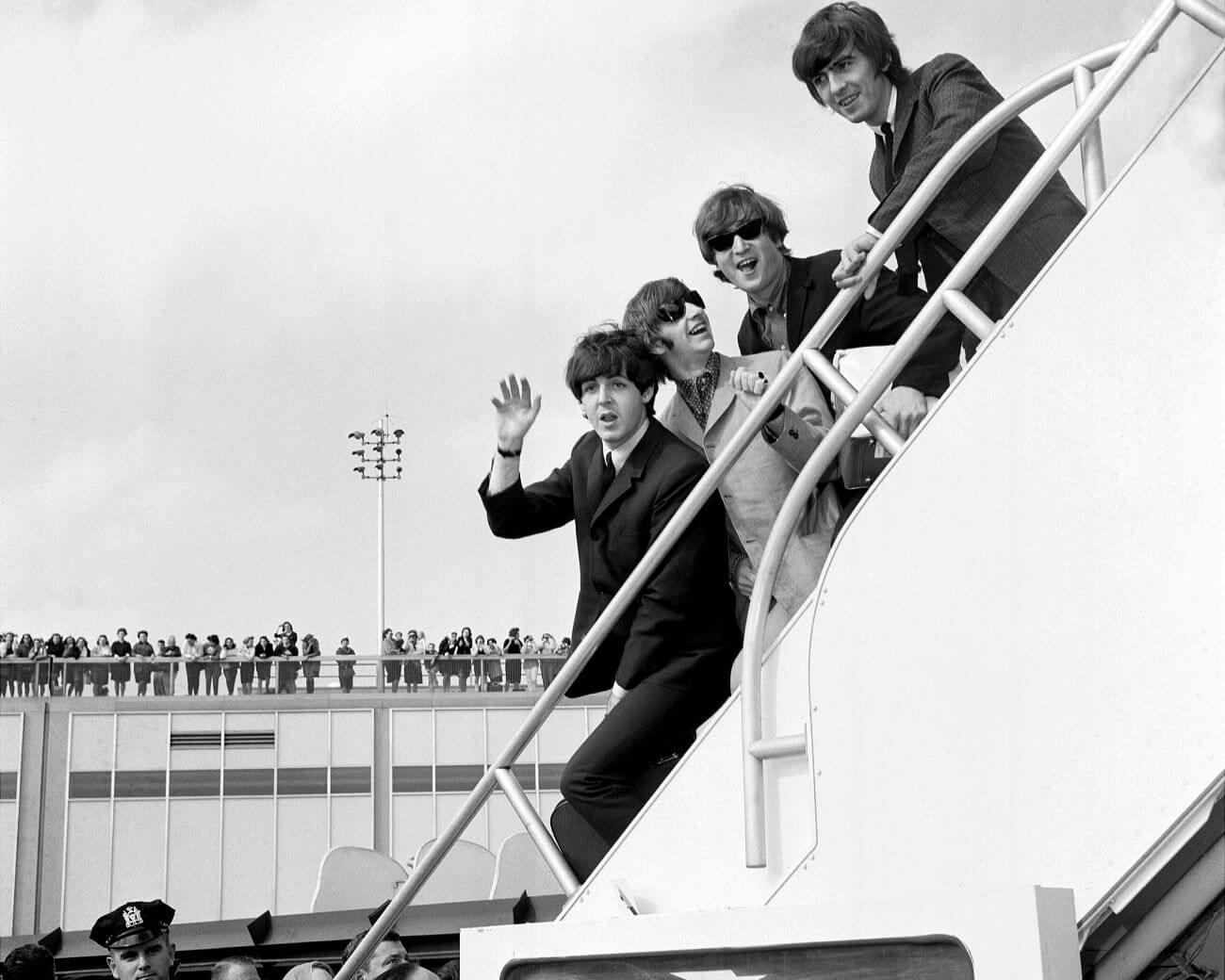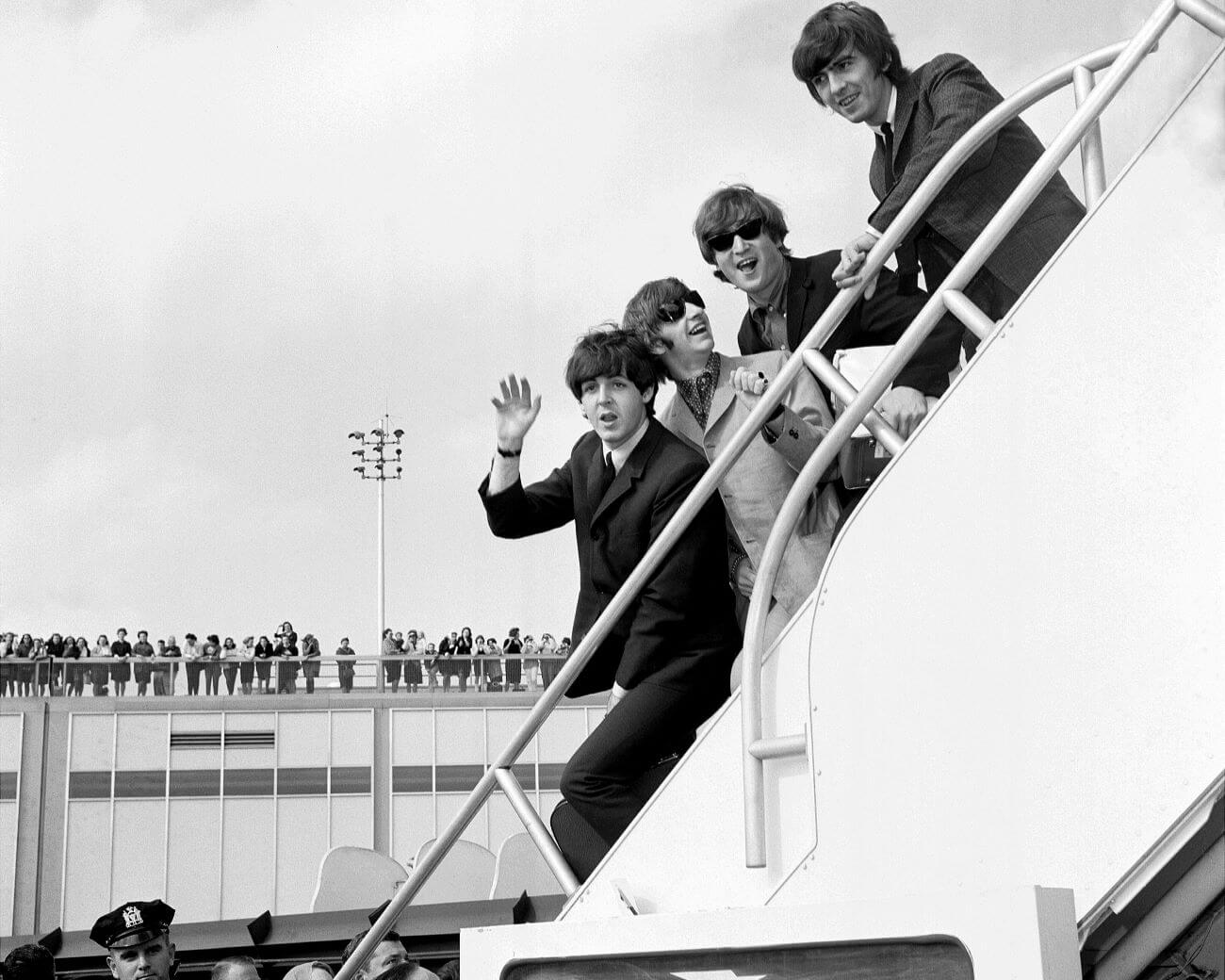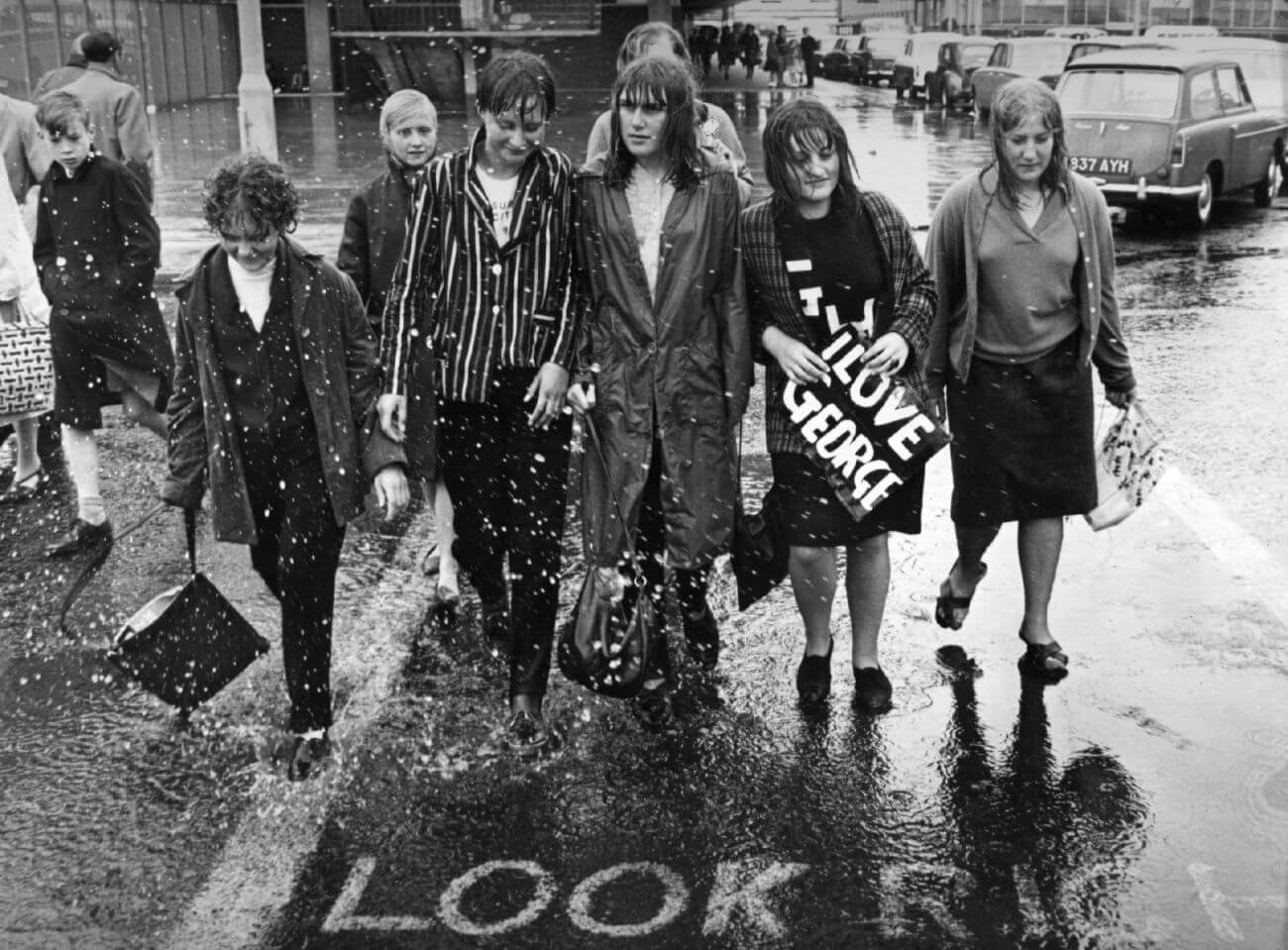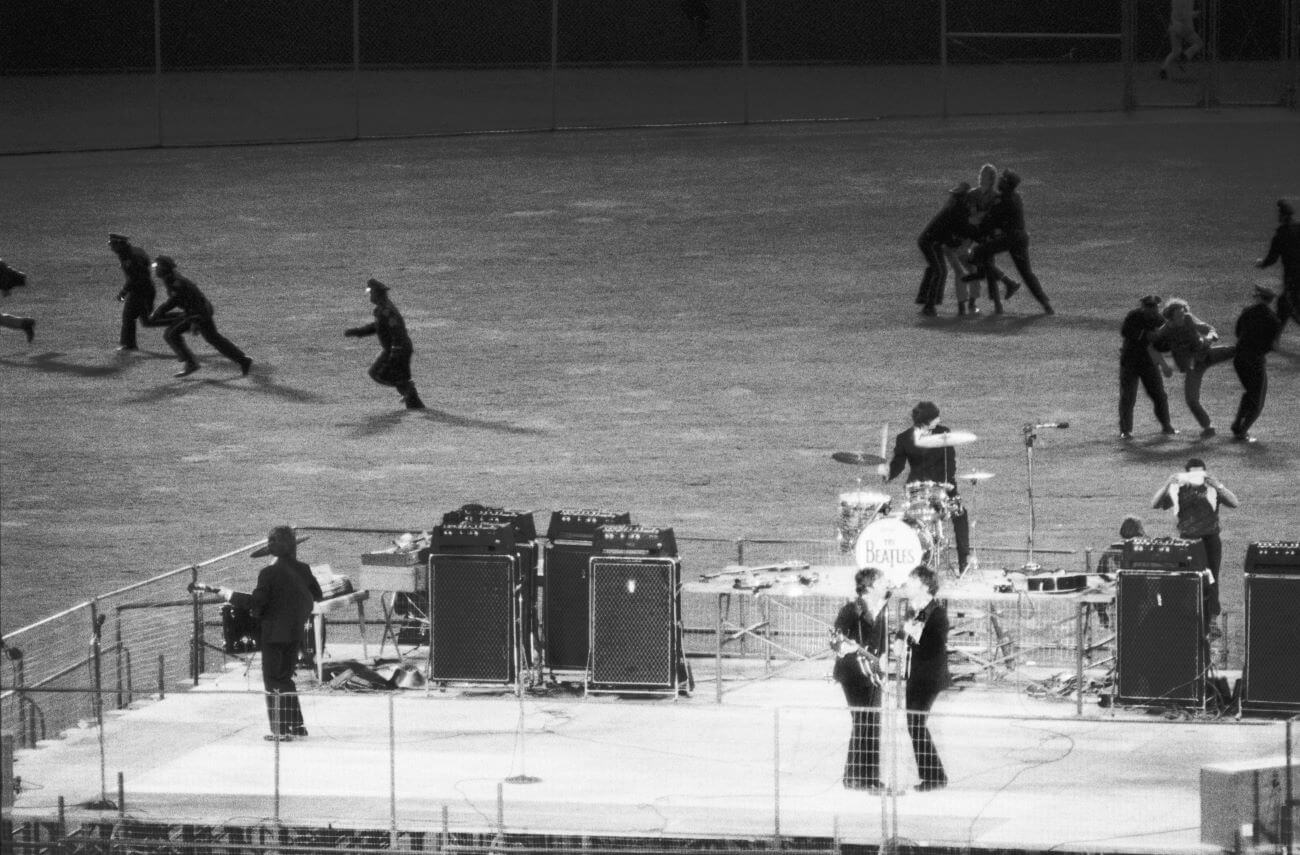
The Beatles Decided to Stop Touring After a Series of Disastrous Shows in the United States
In 1966, The Beatles were at the peak of their fame, but touring was draining the life out of them. Live performances had been how they built an audience and catapulted to fame. By 1966, though, it not only strained their creativity but put their lives at risk. Paul McCartney was the last Beatle to keep pushing for live performances. After a disastrous tour leg in the United States, though, even he agreed that it was time to take a break.

The Beatles’ final year of touring was full of danger
The Beatles’ 1966 tour saw them face trouble nearly wherever they went. They received death threats, battled nasty weather, and had all of The Philippines turn against them. Even when people were well-intentioned, the sheer number of fans became dangerous.
They arrived in the United States already exhausted, but things only continued to get worse. John Lennon had recently said The Beatles were more popular than Jesus, and many people in the South boycotted the band. They felt their lives were in danger.
“One night on a show in the South somewhere [Memphis] somebody let off a firecracker while we were on stage,” Lennon said in The Beatles Anthology. “There had been threats to shoot us, the Klan were burning Beatle records outside and a lot of the crew-cut kids were joining in with them. Somebody let off a firecracker and every one of us — I think it’s on film — look at each other, because each thought it was the other that had been shot. It was that bad.”
After all that, it seems surprising that something like open-air concerts would get to the band. This is what finally got McCartney to admit they needed to stop, though.

“Open-air concerts in the States were terrible,” road manager Mal Evans said. “When it looked like rain in the open air, I used to be scared stiff. Rain on the wires and everybody would have been blown up, yet if they’d stopped the show, the kids would have stampeded.”
After a rainy show that McCartney described as “the worst little gig we’d ever played,” even he grew fed up with touring.
“I finally agreed,” he said. “I’d been trying to say, ‘Ah, touring’s good and it keeps us sharp. We need touring, and musicians need to play. Keep music live.’ I had held on to that attitude when there were doubts, but finally I agreed with them.”
The Beatles stopped touring at a good time
For the band, their decision to stop touring couldn’t have come at a better time. They built up an audience through concerts, but they reached a point where live performances no longer benefited them. The crowd screamed so loudly that they couldn’t even hear themselves play.
“In 1966 the road was getting pretty boring,” Ringo Starr said, per Rolling Stone. “It was coming to the end for me. Nobody was listening at the shows. That was OK at the beginning, but we were playing really bad.”
The decision to stop touring allowed them to focus on their music, which resulted in some of their best albums. It also kept them out of danger. The rate of disaster and death threats was so high that it was only a matter of time before something terrible happened.
The Beatles final show at Candlestick Park came as a relief
The Beatles played the final show of their touring careers at San Francisco’s Candlestick Park. They knew this would be their last show, but they didn’t want to tell anyone.
“The vibe from the boys was one of anticipation of the final show,” Barry Tashian of the Remains, a supporting band on tour. “They looked visibly relieved to know they’d be on their way home soon.”

Press officer Tony Barrow said he could sense that things might be coming to an end. When McCartney asked him to record the final concert, he knew he was right.
“I remember Paul, casually, at the very last minute saying, ‘Have you got your cassette recorder with you?'” he recalled. “I said, ‘Yes, of course.’ Paul then said, ‘Tape it, will you? Tape the show.'”
At the end of the show, they took a picture of themselves with their backs to the audience, knowing it would be their final concert.


